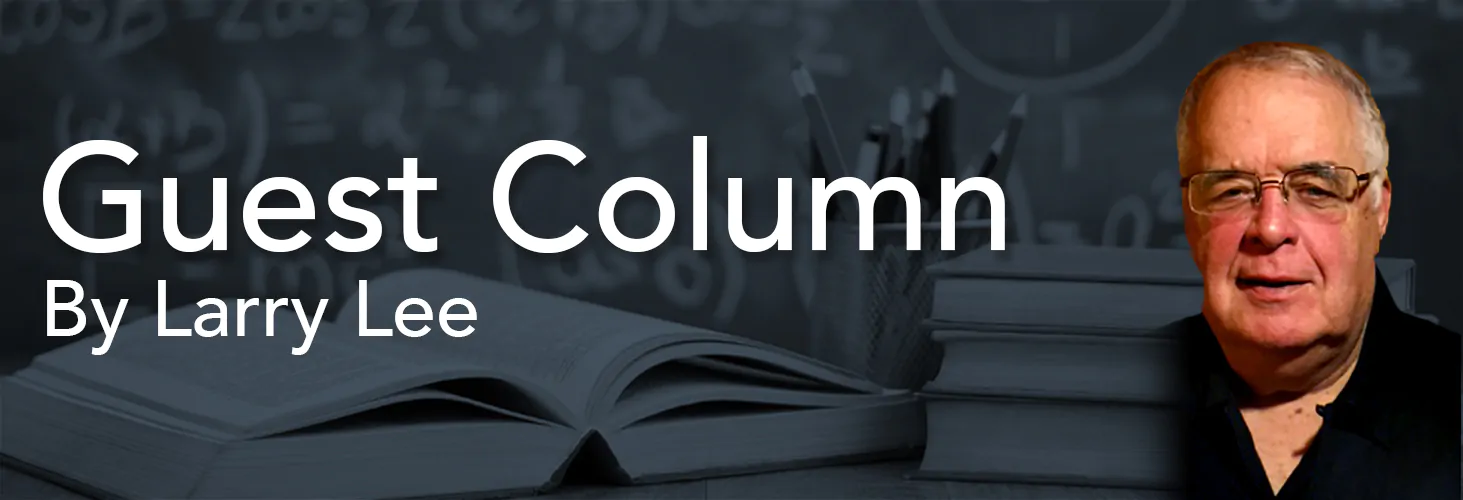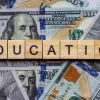Education Matters
By Larry Lee
Some of us can recall when Art Linkletter did a segment on his radio show called “Kids Say the Darndest Things.” He would ask questions of children and in their wonderful innocence they would give answers that often made us laugh.
I read or hear comments from politicians that deserve to also be called “the darndest things.” But there is no innocence involved. Instead, my usual reaction is, “Do they really believe what they are saying?”
Recently Speaker of the House, Mike Hubbard, spoke to a Republican group in Huntsville. Among his comments was, “In the real world, if you’re doing a poor job of servicing your clients, you go out of business,” Hubbard said. “Well, public schools never go out of business no matter how bad they are. So we’re providing competition for those schools.”
In the political world that was a great sound bite, which is why it was reported by al.com. But it would have been better had it been true.
Number one: if a classroom full of 8-year olds isn’t the real world, what is? The Speaker needs to spend some time in schools before he dismisses the work they do so flippantly.
Number two: Schools “go out of business” all the time. Records from the state department of education show that 125 schools have been closed since January 2010. Five of the “failing” schools as designated by the Alabama Accountability Act a year ago are no longer around.
As to the value of competition in improving schools, listen to Margaret Raymond, Director of the Stanford Center for Research on Education Outcomes, one of the nation’s foremost education policy and research groups, as she recently discussed an extensive report about charter schools in Ohio.
“One of the big insights for me because I actually am a kind of pro-market kind of girl (is that) the marketplace doesn’t seem to work in a choice environment for education. I’ve studied competitive markets for much of my career. Education is the only industry/sector where the market mechanism just doesn’t work. It’s not helpful to expect parents to be the agents of quality assurance.”
Other researchers have come to the same conclusion.
“School choice and competition simply have not helped, neither in the United States nor in countries like Chile that have wholeheartedly embraced them. Rather than offering all students better opportunities, vouchers and charter schools have used tax dollars to help some students while leaving many others even more segregated and disadvantaged,” says David Berliner in his best-seller, 50 Myths and Lies that Threaten America’s Public Schools.
Not only do research and facts not back the Speaker’s statement, neither does logic. By his logic we would close the fire station in the neighborhood that has the most fires.
This is not the approach we take to economic development. Would we ever go to a struggling business in a community and tell them we’re recruiting one of their competitors to move to town?
Hardly, but we would probably contact one of the 10 small business development centers in the state to see what help they could provide the struggling company. Or we might enlist the help of one of the 14 units of the Alabama Technology Network.
Contrast the Speaker’s comment about schools to this one from the same speech.
“When you have a good corporate citizen already providing jobs, we need to be able to help,” Hubbard said. “Not to give a hand out, but to reward them and make the path clear for them to make new jobs.”
He is exactly right.
So why not also help struggling schools and struggling communities?
According to the Alabama Accountability Act we have struggling schools in places like Louisville, Clayton, Union Springs, Abbeville, Lafayette, Eutaw, Greensboro, Fort Deposit, Notasulga, Marion, Reform and York. So we should pull the rug out from under them? To take away perhaps the most important thing they have, the one thing that rallies small communities together?
Real world? These places are just as real as any others in Alabama. Where real mamas and daddies long for success for their real children. Where real people drive to real jobs and go to real churches on Sunday.
Why do we even think about turning our back on them?
Larry Lee led the study, Lessons Learned from Rural Schools, and is a long-time advocate for public education. larrylee133@gmail.com read his blog: www.larryeducation.com

















































